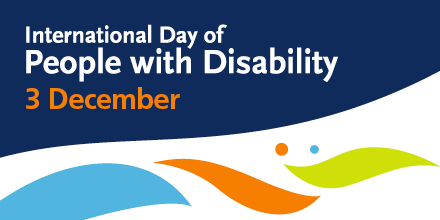In the middle of difficulty lies opportunity. — Albert Einstein
There is no doubt that many people living with disability are often faced with the mental and physical challenges of everyday life. Those challenges have been further heightened by the pandemic which presents severe health consequences for people with disability and has limited their access to care and support.
The level of vulnerability for people living with disability has undoubtedly increased. That level of vulnerability is compounded through the intersection of many factors including but not limited to race, gender, ethnicity, language, age, nationality, sexual orientation and gender identity resulting in extreme disadvantage.
Being in extended periods of isolation has meant that many people living with disability have had to adapt quickly to new ways of learning, working, and socialising.
One of the most profound changes has been the widespread adoption of information technology platforms for remote studying, working and collaboration. With the immediate need for continuity in a world of uncertainty, many organisations have developed and refined their capabilities to harness technology to maintain or improve communication and collaboration. The widespread adoption of these technologies has provided opportunities for people living with disability.
It is not just the adoption of these technologies and people’s proficiency in using them that has changed, there has also been a cultural change in the way we work and live.
With the systematic implementation of new study and workplace adjustments, organisations are taking more proactive steps to support people to work and study flexibly which can help to minimise the impact of disability. Such organisational change to study and workplace practices and environments are facilitating the change needed in individual attitudes and overall community culture.
On this year’s International Day of People with Disability, I am optimistic that the changes in how we work and study as a result of the pandemic will provide a positive legacy for people living with disability, as well as the people that support them. These changes are just a few of the inroads that are needed to dismantle ableism in the pursuit of a more inclusive, diverse, and equitable world for all.
Recommended Reading & Resources:
- ANU is a participating member university of the Neurodiversity Hub
- A student with disabilities’ perspective on the benefits of remote learning
- Three tips for making content accessible to disabled students – Part 1
- Three tips for making content accessible to disabled students – Part 2
- The ongoing importance of remote learning technologies for students
- Disability Types
Acknowledgement for the inspiration of this piece on International Day of People with Disability, goes to the work of Professor Amanda Kirby CEO of Do-IT Solutions and campaigner for Neurodiversity.
Special thanks to Dr Scott Rickard, ANU Centre for Teaching and Learning and the blog insights courtesy of INTERACT – Where learning and teaching get exchanged, ANU Centre for Learning and Teaching.
Thank you also to the kind contributions of Jane and Dom Friel and the support offered from Susan Hancock and Angela, DisAbility and Equity Advisor, ANU Access & Inclusion.

